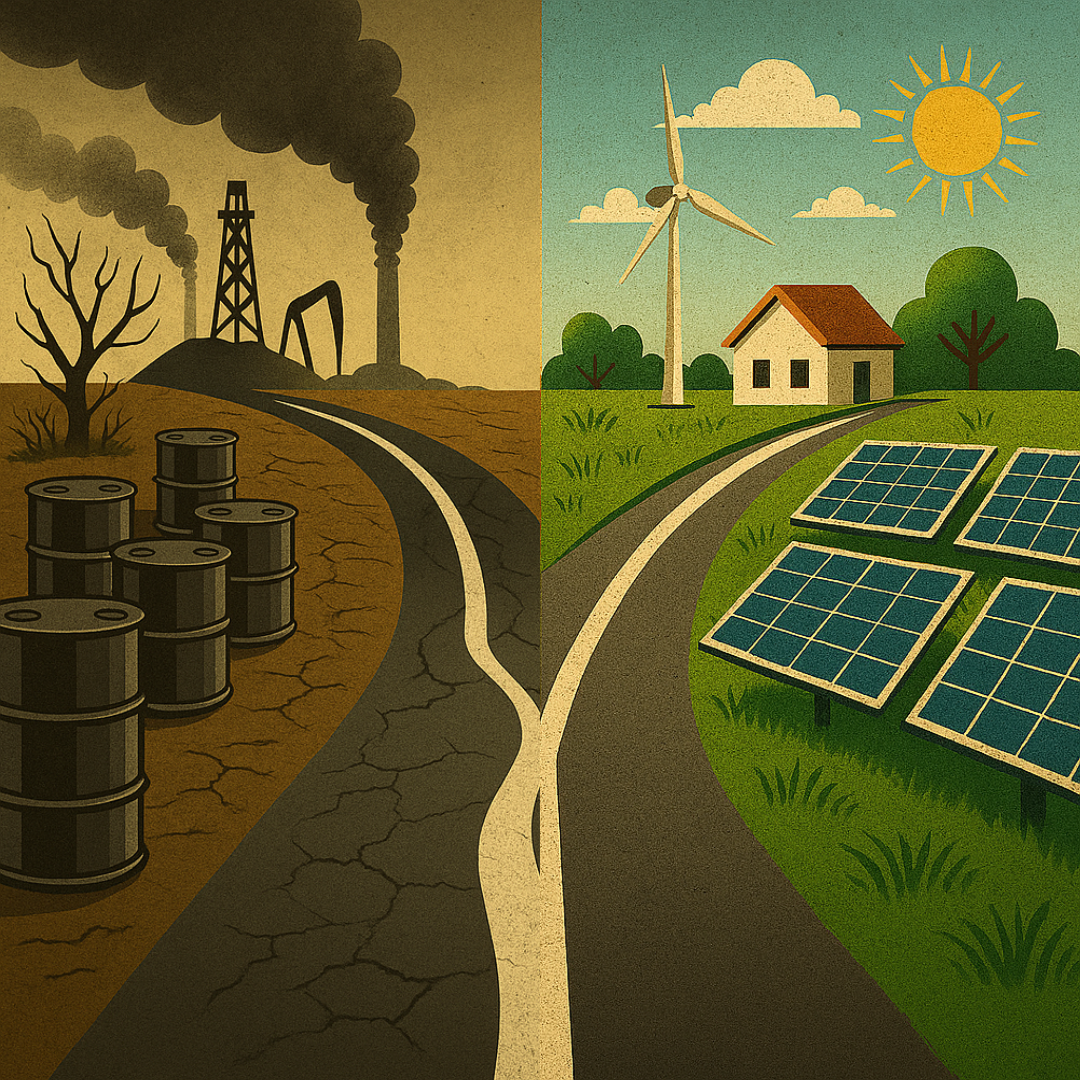Double-Charged: Paying for Fossil Fuels Twice & Subsidizing Pollution and Waste Along the Way
Most of us don’t realize it, but we’re paying for fossil fuels twice.
First through the obvious: every time we fill up our car, switch on the lights, or buy anything wrapped in plastic.
And secondly, the less obvious one, through our taxes. Governments allocate about $1.5 trillion per year to support fossil fuel companies via direct cash, tax breaks, and cheap access to public land (Fractracker, 2025; Kleinman Energy Institute, 2025). So even before a drop of fuel reaches us, public money is already propping up an industry that is wildly profitable.
And yet, we still pay again as consumers: at the pump, on our electricity bill, or when purchasing plastic-heavy goods. It’s a double charge, and most of us never see it.
Even worse? The system we’re all funding is incredibly inefficient. Up to 60% of energy is lost during extraction, transport, and conversion (SourceNM, 2024). That means we’re essentially buying a full meal but only getting a few bites.
Two paths, your choice: keep funding pollution or shift now to clean energy.
So why aren’t we using more renewables?
Because the system isn’t designed to make that easy:
Upfront costs for solar and wind can feel high, even if they’re cheaper in the long run.
Fossil fuels still receive more public funding than renewable alternatives. In 2024, the U.S. allocated $760 billion to fossil fuels vs. just $40 billion to renewables (19:1 ratio) (The Daily Climate , 2025). In the EU, €111 billion for fossil fuels vs. €61 billion for renewables (the ratio was almost 2:1).
Much of our infrastructure is still fossil-dependent.
Oil and gas lobbying and misinformation continue to delay progress. At COP28 in 2023, more than 2,500 fossil lobbyists were in attendance (SourceNM, 2024).
Germany’s government recently concluded that it could meet a third of its climate targets simply by cutting fossil fuel subsidies (Reuters, 2025).
So what now?
This might feel overwhelming, but change doesn’t begin with perfection. It starts with awareness.
Try this: for just one day, notice how often you interact with fossil fuels. Every light switch. Every fuel pump. Every plastic bag. Not to shame yourself, just to see the system that surrounds you.
Because once you see it, you can’t unsee it.
We may not control national policy. But we do control our awareness. And awareness leads to better questions. Different conversations. Better choices.
When millions of people shift, even slightly, the system has to follow.
Change doesn’t require a grand gesture. It just needs a spark. A moment of clarity. A shift in how we talk, spend, vote, and act.
Because we’re not just energy users. We’re energy funders. And when we stop blindly paying into a system we don’t believe in, we open space for one we do.
If you’re interested in clearer strategies, connect with Mr. G - Galeno Chua and check out Business Sustainability Accelerator, our training ecosystem designed to equip sustainability professionals with the tools, clarity, and credibility to lead confidently in real-world business strategy.
Watch our explainer clip: here
